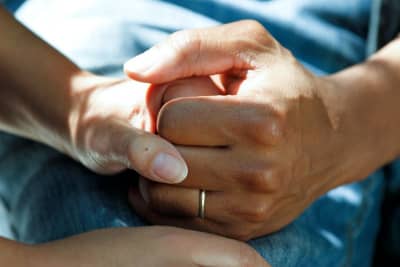If you've ever suffered from depression, I'd hazard a guess that at some point in your life you've experienced that friend or family member's well intentioned but unhelpful attempts at "cheering you up".
Reflecting on why certain suggestions are misguided recently led me to thinking about what does really work. Why do some classic methods of "cheering you up" not work for depression? And what are the less intuitive, more surprising little things that we can do for ourselves, or ask our friends to do for us, that might actually work?
During a particularly bad bout of depression, a close friend happened to listen to some of my music on a music sharing site. She commented on how most of it was fairly downbeat and pensive and suggested that I'd start feeling happier if I added some more happy songs to my play lists.
A few days later she very sweetly sent me a mix tape of about forty of her best "happy songs". It was a beautiful gesture and made me feel loved, but the songs themselves had the opposite effect. They were all high tempo, extremely upbeat pop or dance tracks and although I love them when I'm happy, listening to them at the time was like the equivalent of standing on a traffic island surrounded by howling emergency vehicles and beeping car horns. It hurt.
We've probably all experienced this kind of sensory overload during low periods. Going to a party, for instance, and having to navigate the fast talking, loud laughing, harsh music chaos when all we want to do is hide under a duvet in the dark. It's like trying to go from first gear straight to fifth gear without first building up the speed. The engine just cant' cope and it can end up doing more damage than good.
Having said all that, I do believe that music, stories, films and even socializing can all play a big part in lifting us out of deep lows if approached in the right way. Going back to the driving analogy, we need to be aware of what gear we're in first, and then work up through the gears slowly. To engage with a new gear, the speed of the gear box needs to be correctly matched to the speed of the engine before changing.
It's that word "engage" that is the key. For me, when I'm low, I find I can engage far more easily with a pensive, sad song at first, and then often those songs contain something moving or balancing that can help lift me ever so slightly out of the depths.
Similarly, if a friend wants to meet up and I'm not so low that I'm incapable of dragging myself out, going for a coffee or a quiet one-to-one dinner would be far more preferable than braving a party.
I see depression as a sliding scale. We rarely wake up one morning at rock bottom, so catching it as early as possible by doing little things is always important. Why not make a list of small things that you know will help you change gear.
I keep list in the back of a small note pad at home. The activities range from going out with a friend, to simply having a shower or a bath. If I haven't managed to catch my slide down in to depression early, sometimes the latter is the only thing I can manage – and it works. Once you've attempted one of the easier things on your list and your mood has been lifted, it may lead to attempting something more challenging that will lift your mood further still. Who knows? Next week you might be dancing on the table at that party.



Comments
You need to be Logged In and a Moodscope Subscriber to Comment and Read Comments